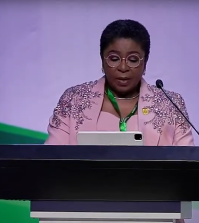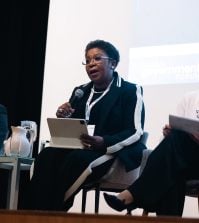Public servants ‘fall flat’ on policy implementation, says Nigeria’s vice president

Nigeria must ramp up efforts to train and motivate public servants or risk undermining its development prospects, Yemi Osinbajo, the government’s vice president has said.
Addressing an audience of civil servants along with students from the Africa Initiative for Governance (AIG) and Oxford’s Blavatnik School of Government’s public leadership programme, Osinbajo said that Nigeria’s civil service continued to develop clear policy but that enacting it successfully remained a challenge.
“Our governments have never been short of ideas, policies or roadmaps. Indeed, we have some of the best written and most insightful policies on practically all issues, but we sometimes fall flat on implementation. The reason is the quality of the human resources that we deploy in the public sector,” he said.
GGF training course: The Strategic Policy Maker’s Toolkit: Two-Day Training Seminar
Osinbajo said governments could learn a lot from the private sector by observing the way it trains and motivates people to deliver on its goals.
“Unlike in the private sector, where usually the profit motive makes it imperative to provide relevant and cutting-edge training to ensure that staff is well-equipped to deliver on targets and KPIs, the public service [has taken an approach that results in] a bureaucracy unable to develop, but more importantly deliver on government initiatives and programmes,” he said.
Osinbajo said Nigeria’s government must ensure the bureaucracy is willing to engage with the social, economic and technological changes that have shaped the world since the start of the century. This would mean developing a culture that recognises how “old assumptions about commerce, lifestyle, gender issues, political ideology are now being upturned or, at least, being seriously challenged”.
Preserving the nation’s best
In his speech, Osinbajo remarked that the case for improving the training of public servants was as much economic as political.
Doing so would require Nigeria’s government to develop clear rules aimed at preserving the “honesty, transparency and integrity” of public officials, he said, adding that corruption “kills progress and will destroy the nation’s best”.
“Why do systems anywhere in the world uphold basic notions of honesty, transparency and integrity? It is because it makes economic sense; dishonesty undermines the entire enterprise,” he said.
In 2017, Muhammadu Buhari, Nigeria’s president, sacked the country’s tophighest-ranking civil servant following a corruption probe. David Babachir Lawal, secretary to the Government of the Federation, was fired after a senate investigation into alleged corruption in humanitarian aid projects for areas ravaged by terrorist group Boko Haram. A panel of lawmakers alleged that Lawal had diverted aid money from relief programmes in north-eastern Nigeria for private gain.
To bolster its training capacity, the Nigerian government signed a skills deal earlier that year with AIG to provide skills support and funding to Nigeria’s Office of the Head of the Civil Service of the Federation. Areas of focus for the programme include culture, technology, entrepreneurship and welfare administration.






















